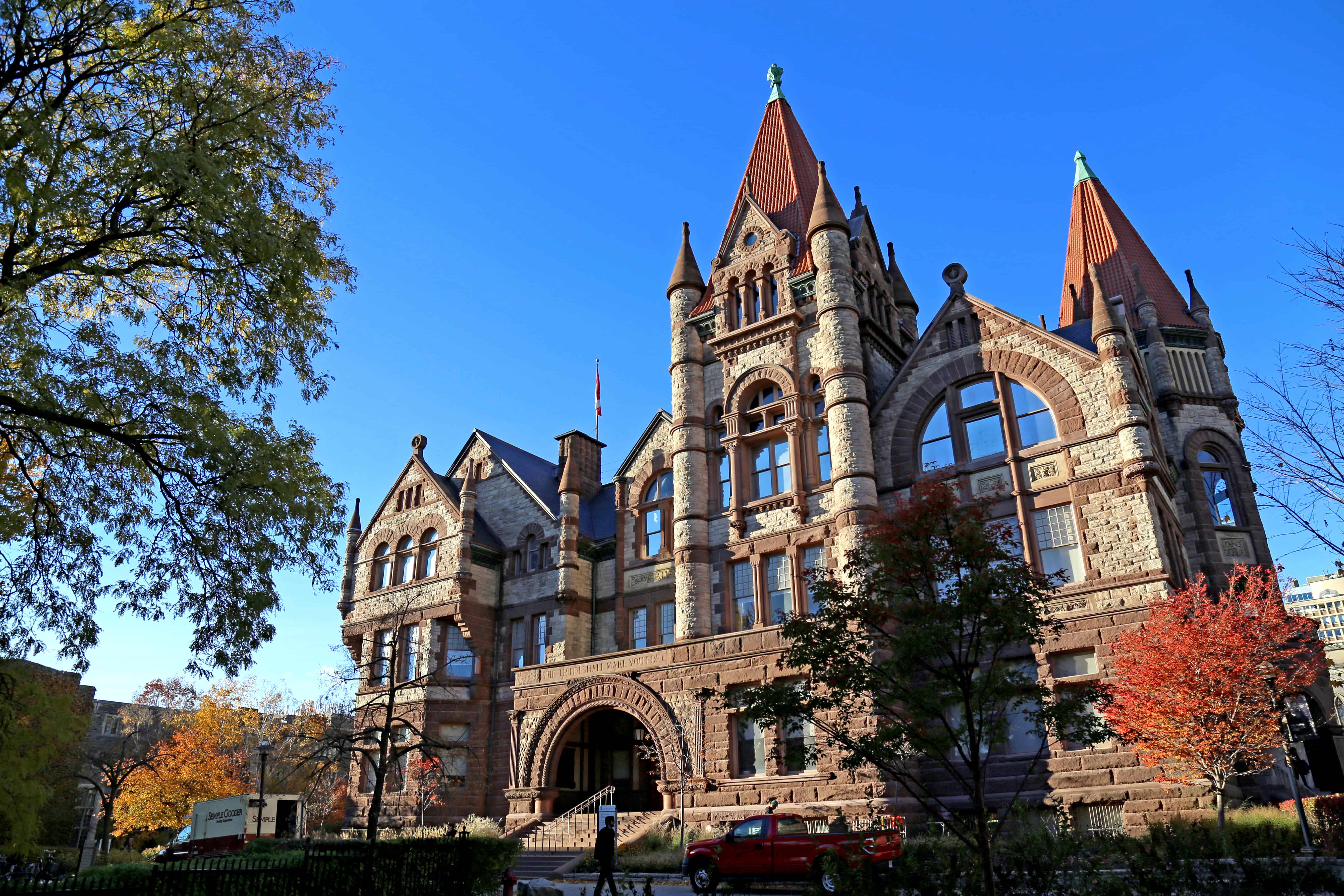According to the 2018 provincial budget, Victoria University may have to begin paying millions of dollars in taxes on its properties in the Bloor-Yorkville area, which are currently exempt from tax under an existing agreement with the City of Toronto.
Victoria, one of the federated colleges at U of T, owns land that it leases to commercial and residential buildings at 131, 151, and 153 Bloor Street West, 8 St. Thomas Street, and 110 Charles Street West. The commercial and residential buildings atop these plots of land are subject to property tax, but the land itself is not.
The properties are exempt from paying millions of dollars in yearly land tax under the Victoria University Act of 1951. Between the 2013 and 2016 tax years, the five properties cost the city over $20 million in lost tax revenue.
The 2018 provincial budget, released March 28, reveals that these exemptions are being revisited. The budget announced proposed amendments to remove the exemptions and “ensure the municipal tax exemption applies only to lands owned and occupied by the university.”
Many universities are exempt from paying taxes on properties occupied and operated for educational purposes — this is the case for OCAD University, Ryerson University, and York University. The University of Toronto, like Victoria, is exempt from property taxes on leased properties but pays these taxes on a voluntary basis. Victoria does not.
The issue has been a serious matter of contention between the city and the university, and the two parties began negotiating on the matter in early 2017.
The Toronto Star reported in March 2017 that, according to a confidential city report, Victoria offered to pay $100,000 per year for up to five years in exchange for the retention of its tax-free status. Negotiations continued, with a deadline set for September 2017. After that point, the city said it would ask the province to take action in removing the tax exemption.
Jennifer Little, Victoria’s Manager of Marketing and Communications, said that “Victoria University has worked cooperatively with Toronto and Ontario over the past 18 months to manage the effects of any policy change relating to our tax treatment.”
“In general, the changes in the Budget reflect these efforts.”
The incomes from the leases are no small matter to Victoria University. The university’s President, William Robins, said in 2017 that all of the income went to “delivering on our postsecondary educational mission.” In 2017, Victoria University brought in $8,662,000 in revenue from its properties, approximately 76 per cent as much as it received that year from student fees. Lease income in 2017 represented more than three-and-a-half times the amount spent that year on student scholarships and bursaries.
“Ontario is committed to a property tax system where everyone pays their fare share,” reads the budget. “This has raised concerns of inequity with respect to business properties and reduces revenues to the city that could be used to fund important services.”
The change would not be immediate. The province has set minimum time periods for the incremental increase of the properties’ taxes, subject to extension by the city. The land tax on commercial properties would be increased from exemption to full taxation over at least four years; residential properties, six. This phasing process would start in 2019.
“We are still working through some implementation details, and hope to have the matter fully resolved shortly,” Little said.
The extent of Victoria University’s lobbying efforts
Victoria engaged in extensive lobbying at both the municipal and provincial levels in efforts to maintain the tax exemption on leased land and stop amendments being made to the Victoria University Act. The institution employed StrategyCorp, a strategic public affairs and communications firm with strong ties to the government. StrategyCorp has lobbied at the provincial level on behalf of Victoria University four times between November 2017 and March 2018.
Details of lobbying efforts are logged in the public record of both the City of Toronto and the Office of the Integrity Commissioner of Ontario. John Duffy, John Matheson, and Stephen Adler are the StrategyCorp representatives who have lobbied on behalf of Victoria at the municipal level.
While it would take at least four years for the land tax rates for commercial properties to fall into line, and six years for residential properties, the City of Toronto has the authority to lengthen these time periods.


